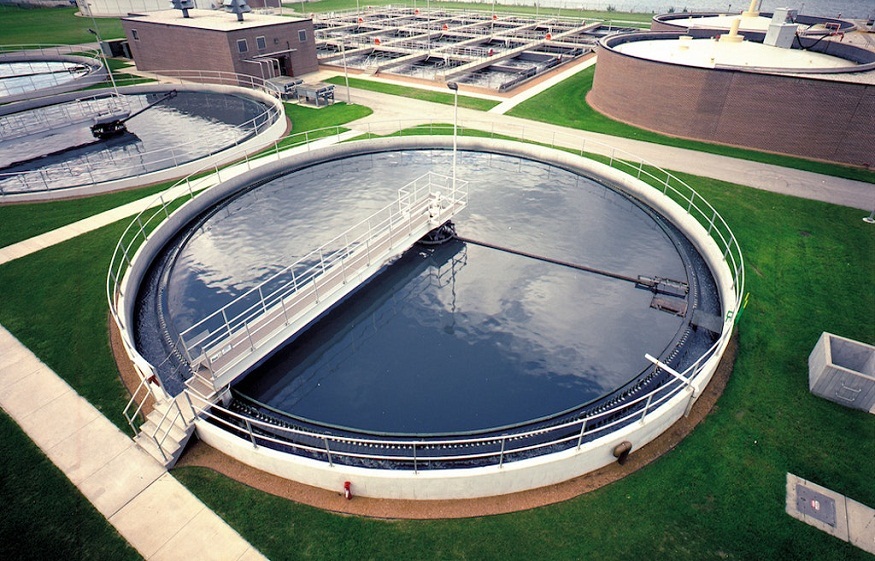
The Role of Transport Pumps in Water Treatment Plants
Water treatment plants play a crucial role in delivering clean, safe water to homes, industries, and communities. Behind the scenes, transport pumps are the workhorses ensuring that water flows seamlessly through every stage of the treatment process. From municipal facilities to large-scale industrial applications, these pumps are essential for the efficient and reliable operation of complex water treatment systems.
This post explores how transport pumps function in water treatment plants, the types of pumps commonly used, and why investing in quality pumps is vital for maintaining efficiency and performance.
Why Are Transport Pumps Essential in Water Treatment?
Transport pumps are specifically designed to move water and other liquids across treatment stages. They ensure a smooth flow between each step, from intake and pre-treatment to chemical dosing and final distribution. But their importance doesn’t stop there—these pumps also support processes involving sludge management, pressure regulation, and high-volume water transfer.
Without reliable transport pumps, water treatment plants would struggle to operate efficiently, safe water delivery might be jeopardized, and energy costs would soar. Simply put, these pumps are essential for sustaining the water systems we rely on.
Key Applications of Transport Pumps in Water Treatment
Transport pumps serve a variety of purposes both in municipal water treatment plants and in industries requiring large-scale water use. Below are the main applications where these pumps play a critical role.
1. Raw Water Intake
Before any treatment begins, water needs to be brought into the plant from a natural source, such as rivers, lakes, or reservoirs. Transport pumps designed for “raw water intake” make this possible by moving large volumes of untreated water into the plant. These pumps must handle variations in flow rate, pressure, and water quality—a task that demands durability and efficiency.
2. Chemical Dosing and Mixing
Water treatment involves applying chemicals to remove contaminants and improve water quality. For this, accurate and controlled dosing is critical. Pumps are used to mix and distribute specific amounts of substances like chlorine, fluoride, and coagulants reliably throughout the treatment process.
3. Filtration Support
Transport pumps are central to the filtration stages, where water passes through sand, membranes, or other filters to remove impurities. These pumps regulate flow rates and maintain the pressure required to clean water thoroughly, ensuring compliance with safety and quality standards.
4. Sludge Management
Water treatment isn’t just about cleaning raw water—it also involves managing waste. Transport pumps move sludge and byproducts of the cleaning process to designated areas for further treatment or disposal. Pumps designed for sludge handling need to be robust enough to manage dense, solid-laden materials.
5. High-Pressure Systems for Distribution
The final stage in water treatment involves distributing clean water to end-users, whether municipalities or industrial facilities. Transport pumps used at this stage generate the high pressure required to transport water over long distances or uphill terrains while maintaining a consistent flow rate.
Choosing the Right Transport Pumps
Given their critical applications, selecting the right transport pumps is paramount for water treatment plants. But what factors should engineers, plant managers, or industrial professionals consider when making this decision?
1. Durability and Material Quality
Transport pumps in water treatment plants endure heavy workloads and exposure to corrosive materials. Choosing quality pumps made from durable materials, such as stainless steel or cast iron, ensures longer service life and resistance to wear.
2. Energy Efficiency
Energy consumption is a major concern for water treatment operators. Pumps with energy-efficient designs not only reduce operating costs but also minimize environmental impact. Look for pumps equipped with advanced motors or those certified for energy efficiency.
3. Application-Specific Features
Different stages of water treatment require pumps with specific features. For instance:
- For high-pressure systems, centrifugal pumps are usually preferred.
- For sludge management, progressive cavity pumps or peristaltic pumps work best.
- Chemical dosing often requires diaphragm or metering pumps for precision.
Understanding the intended application helps in selecting pumps that perform optimally in specific scenarios.
4. Ease of Maintenance
Frequent downtime can disrupt water supply and inflate operational costs. Choosing transport pumps with user-friendly designs makes routine maintenance, troubleshooting, and part replacement easier. This ensures minimal downtime and maximized performance.
Municipal vs. Industrial Water Treatment Applications
While both municipal and industrial water treatment plants rely on transport pumps, their specific needs can differ significantly.
Municipal Applications
Municipal plants focus on treating and delivering potable water to communities and handling wastewater. The emphasis lies on ensuring public health and meeting stringent regulatory standards. This often involves high-capacity pumps capable of moving millions of gallons of water daily while adhering to strict safety and efficiency protocols.
Industrial Applications
For industrial water treatment, the requirements are more varied and specialized. Applications may include treating water for manufacturing, cooling systems, or even power generation. Pumps in industrial settings often deal with harsh conditions, such as high temperatures, chemical exposure, and abrasive materials. Here, the choice of quality pumps plays an even more critical role in ensuring reliability.
Why Invest in Quality Pumps?
Investing in high-quality transport pumps may seem like an upfront cost, but the long-term benefits far outweigh the initial expenditure. These include:
- Reduced Operational Costs: Energy-efficient pumps lower electricity bills and contribute to sustainable practices.
- Minimized Downtime: Reliable pumps with less frequent maintenance requirements keep operations running smoothly.
- Enhanced Efficiency: High-quality equipment ensures optimal flow, pressure, and performance across all treatment stages.
Opting for subpar pumps often leads to breakdowns, inefficiencies, and increased operational costs—not to mention the risk of water quality issues.
Crafting a Sustainable Future
Transport pumps are the unsung heroes of water treatment plants, making clean, safe water accessible while ensuring efficient and sustainable operations. Whether it’s municipal or industrial applications, investing in quality pumps that meet specific needs is crucial for reliability and performance.
If you’re exploring the best transport pumps for your facility, don’t compromise on quality. With the right solutions, you can enhance your water treatment systems and contribute to a thriving, sustainable future.




